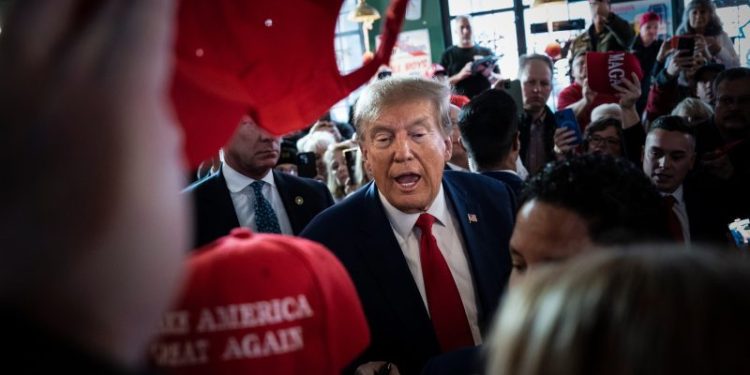“Attacking the Unconventional: Ads Targeting No Labels and Third-Party Presidential Bids
Third party presidential bids have become increasingly popular in recent years, with a few even gaining traction in the polls. This trend, however, has not been welcomed by all. Critics of no-labels and other third party presidential bids have launched attacks to prevent them from succeeding, and their efforts are beginning to be noticed.
The “No-Labels” movement, founded independent of a political party, is a group of people looking to rid politics of partisanship and focus on “problem solving.” To that goal, they have launched numerous advertising campaigns across the nation, the most recent targetting the Republican and Democratic parties. This message, however, has not been well-received by all.
Various Republican and Democratic groups have launched a counter attack, airing ads drawing attention to the “No-Labels’” lack of specifics and potential to split the vote. The groups cite that neither party should have to run against a candidate they have no control over, and that any third-party presidential bid has a habit of splitting the vote and potentially costing either party the election.
Third-party candidates are also feeling the wrath of partisanship, with some going so far as to use scare tactics to dissuade voters from supporting such independent candidates. Specifically, third-party presidential candidate, Ross Perot has come under fire from the two major political parties, alleging that a vote for Perot is a “vote for Clinton.”
Ultimately, it appears that the efforts of hardcore political partisans to dissuade people from voting for third-party presidential bids may be successful. While claims of a “wasted vote” are unsubstantiated, some individuals may be turned off from the notion of voting for an independent candidate due to the harsh criticism they have received. These groups have effectively prevented third-party presidential bids from gaining too much traction, and as a result, will most likely remain on the electoral sidelines come November.
Third party presidential bids have become increasingly popular in recent years, with a few even gaining traction in the polls. This trend, however, has not been welcomed by all. Critics of no-labels and other third party presidential bids have launched attacks to prevent them from succeeding, and their efforts are beginning to be noticed.
The “No-Labels” movement, founded independent of a political party, is a group of people looking to rid politics of partisanship and focus on “problem solving.” To that goal, they have launched numerous advertising campaigns across the nation, the most recent targetting the Republican and Democratic parties. This message, however, has not been well-received by all.
Various Republican and Democratic groups have launched a counter attack, airing ads drawing attention to the “No-Labels’” lack of specifics and potential to split the vote. The groups cite that neither party should have to run against a candidate they have no control over, and that any third-party presidential bid has a habit of splitting the vote and potentially costing either party the election.
Third-party candidates are also feeling the wrath of partisanship, with some going so far as to use scare tactics to dissuade voters from supporting such independent candidates. Specifically, third-party presidential candidate, Ross Perot has come under fire from the two major political parties, alleging that a vote for Perot is a “vote for Clinton.”
Ultimately, it appears that the efforts of hardcore political partisans to dissuade people from voting for third-party presidential bids may be successful. While claims of a “wasted vote” are unsubstantiated, some individuals may be turned off from the notion of voting for an independent candidate due to the harsh criticism they have received. These groups have effectively prevented third-party presidential bids from gaining too much traction, and as a result, will most likely remain on the electoral sidelines come November.










